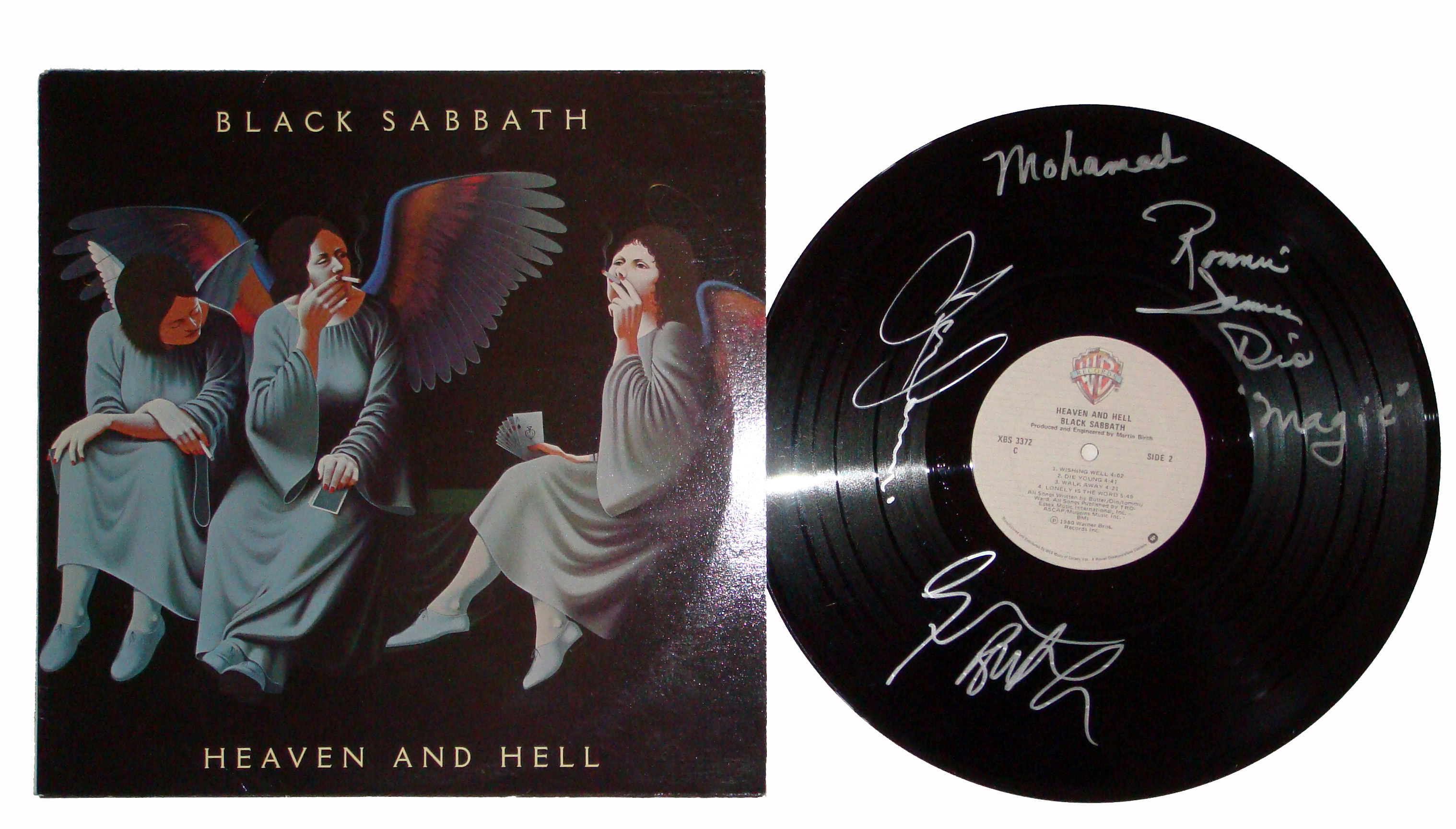


Suddenly, the fans of this Black Sabbath were confronted by a new Black Sabbath whose music was a magic ritual to create a space where “show business” as such does not exist. There was always something winking and performative about the original Black Sabbath, much like the midcentury horror movies that inspired it, a constant awareness in the background that in the end it’s all just show business. At times, especially in “Die Young” and “Wishing Well”, he can exhibit an almost delicate tenderness, but never for long how can he, when to linger in such a mood is to invite back in the vulnerabilities that many listeners approach metal to escape or trasncend, and to shoo out the guitar distortion that makes metal, well, metal? Therein lies the Achilles heel of Dio-Sabbath, and metal more generally-it requires from both performers and audience total commitment to the make-believe to work, and the presence of irony and self-consciousness annihilates metal’s magic like antimatter. Rather than wowing you with the stratospheric heights of his vocal range like many of his rivals, Dio’s style emphasized his mid-range power, and a quite vicious rasp that can blend seamlessly into his extremely warm and rich natural voice, or flash in and out like lightning. It’s true there are fewer big stomping catchy riffs here, and even if there were, Dio would have just out-sung them anyway. So in one of the universe’s great ironies, Black Sabbath decentered the metal riff in the process of becoming more metal. Dio, on the other hand, boasted a naturally powerful, resonant, robust voice, and saw Tony Iommi’s riffs less like a force of nature to be worked around than a challenge, a mountain to climb on top of and a platform for his expansive, dramatic, sometimes ostentatiously difficult melodies. Ozzy Osbourne was, for all his celebrity aura in later life, a shy and mousy singer in the days when he was still a singer and not a public spectacle, writing his vocal lines around the riff and riding whatever vibe the band generated. He was competent as a sensitive-guy doo-wop crooner in the ‘50s and ‘60s and slightly less competent as a white boy bluesman in the early ‘70s, but in his previous gig with Ritchie Blackmore’s Rainbow, he found the role he was born to inhabit. Having taken on heavy metal’s aesthetics and heavy metal’s priorities, the new all-metal-all-the-time Sabbath Mark II would inevitably get a belter of their own.Īnd, as befitting the former rock ‘n’ roll band that would be godfathers of heavy metal, their belter was himself an ex-rocker turned metal singer to rule them all, Ronnie James Dio. Black Sabbath played riffs some of the time, so the new bands would therefore play them all the time, and the new crop of belting tenors simply had the voices best suited to singing over this sort of music. The old Black Sabbath was eclectic and exploratory, sometimes to its benefit, sometimes to its detriment, but the new metal bands were primarily interested in one thing- more. If they didn’t hire Ronnie James Dio, they would have had to hire someone like him anyway. If their self-titled album, recorded in 1969 and released in 1970, is Black Sabbath inventing heavy metal, then Heaven and Hell, recorded in 1979 and recorded in 1980, is heavy metal re-inventing Black Sabbath. “Is Black Sabbath without Ozzy Osbourne really Black Sabbath?” is a rather subjective question, but one thing for certain is that it is different. The death and transfiguration of Black Sabbath. Album review: Black Sabbath – Heaven and Hell


 0 kommentar(er)
0 kommentar(er)
